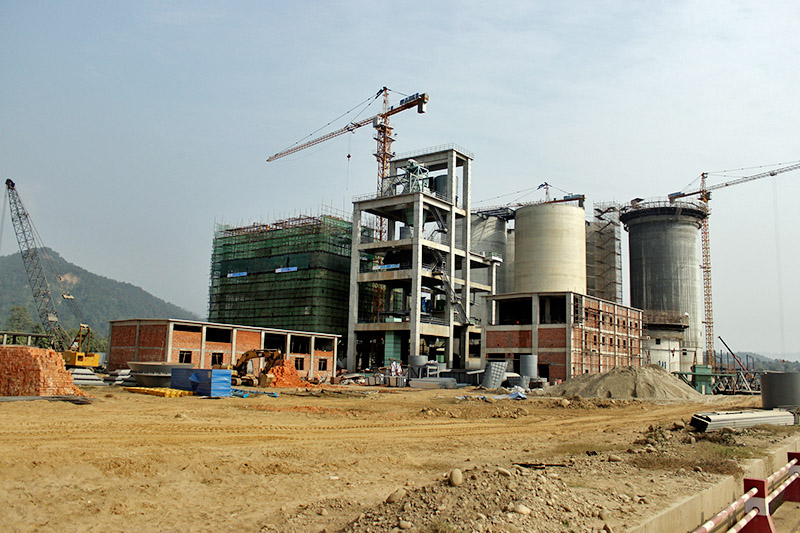Lack of market worries cement manufacturers
Bhairahawa, December 17
As the country is gradually becoming self-reliant in cement production, domestic manufacturers are worried of surplus production.
Just a few years back, the country was dependent on India for cement and clinker. However, with the huge local and foreign investment in the cement industry, the country is now becoming self-reliant. While the annual demand of cement in the country is 800 million tonnes, total production capacity of cement factories in Nepal currently stands at almost 1,200 million tonnes per annum.
More than 50 cement factories are producing cement in the country at present and there are more factories in the pipeline. “In such a situation, we have no other option than to export our products,” said Pashupati Murarka, promoter of Arghakhachi Cement.
“After the 2015 earthquakes, demand of clinker increased in the market for reconstruction works. Our production was getting a good market due to reconstruction activities and the government’s initiative to bolster infrastructure construction,” Murarka said. “Now the reconstruction phase is almost coming to an end and the demand for clinker is less than the supply in the market.”
He further said that the solution could be either to increase internal consumption, for which more infrastructure projects need to be built or manufacturers need to focus on exporting the cement produced in the country.
“We are capable of exporting clinker, but the government has to support us in reducing production cost,” Murarka said.
“The country is becoming self-reliant in electricity, so it could reduce electricity rate for cement factories,” he opined.
According to him, cement factories have to import coal from South Africa and based on bilateral treaty of Nepal and India, importing coal from third countries via India is not allowed. “If the government amends the treaty with India, our production cost will be reduced,” Murarka said, adding, “Likewise, local governments have to remove extra charges to industry. Then only will our prices be competitive in the international market so that we can export clinker.”
Likewise, Nepal is also self-reliant in steel and its production has been rising in the market.
Currently, the country is producing around 2.2 to 2.3 million tonnes of steel. However, the market demand has remained constant for the last two years at 1.1 million tonnes, said Rajesh Kumar Agrawal, promoter of Shree Steels.
“The market demand is almost half the total production,” he said. “Based on the increasing population and financial status of the country, the demand had to increase, however, it has remained steady for the last two years.”
There is no other option than to export to manage supply and demand of steel, Agrawal added.






